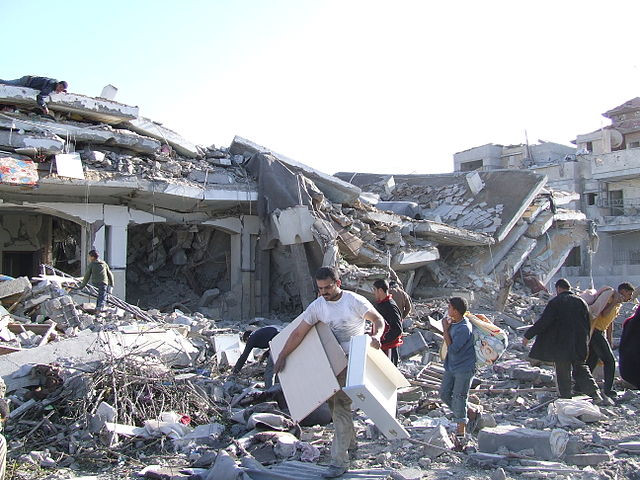Negotiations for a ceasefire in Gaza and a phased hostage release are nearing finalization, with officials expressing optimism that a deal could be reached within days. Mediators from the United States, Qatar, and Egypt have worked intensively to bring Israel and Hamas closer to an agreement after over 15 months of conflict that has devastated Gaza and destabilized the region.
Hamas has tentatively approved a draft agreement that outlines a three-phase ceasefire plan, according to an Egyptian official and a Hamas representative involved in the talks. A senior Israeli official confirmed progress in the discussions but noted that final details were still under review. U.S. Secretary of State Antony Blinken emphasized the deal's imminence, stating, "It's closer than it's ever been before."
Framework of the Draft Agreement
The proposed deal, a culmination of efforts spearheaded by President Biden's administration and endorsed by the United Nations Security Council, outlines a multi-phase process.
- Phase One involves a 42-day ceasefire during which Hamas would release 33 hostages, including women, children, and older civilians, in exchange for the release of hundreds of Palestinian prisoners by Israel. Israeli forces would withdraw from densely populated areas in Gaza, allowing displaced Palestinians to begin returning home. Humanitarian aid, including 600 daily truckloads of supplies, would flow into the besieged territory.
- Phase Two focuses on the release of all remaining hostages and the withdrawal of Israeli forces from Gaza. Negotiations for this phase are set to occur during the first 42 days, though no guarantees have been provided for its implementation.
- Phase Three would facilitate the exchange of deceased hostages' bodies and launch an international reconstruction initiative for Gaza. Border crossings would be reopened under supervised conditions.
The deal also allows Israel to retain military control over certain areas, including the Philadelphi corridor along Gaza's border with Egypt, while withdrawing from others.
Challenges and Concerns
Despite progress, unresolved issues remain, including the specifics of prisoner exchanges and the long-term governance of Gaza. Hamas has insisted that all hostages must be freed in exchange for an end to the war and a complete Israeli withdrawal, a stance that contrasts with Prime Minister Benjamin Netanyahu's earlier vow to dismantle Hamas' military capabilities entirely.
Negotiators have emphasized the fragile nature of the talks, as previous efforts have faltered at critical junctures. "There is progress in all components of the agreement formula," an Israeli source said, echoing sentiments shared by U.S. National Security Adviser Jake Sullivan, who urged both sides to "seize the moment."
Human Toll and Global Reactions
The conflict has left a devastating toll. Hamas' October 7, 2023, attack resulted in 1,200 deaths and 250 kidnappings in Israel. Israeli airstrikes in retaliation have killed over 46,000 Palestinians, with Gaza's health ministry reporting that many of the casualties were women and children. The majority of Gaza's 2.3 million residents have been displaced, with aid agencies warning of a looming famine.
International pressure to halt the violence has mounted, particularly as President-elect Donald Trump prepares to assume office. Trump's incoming Middle East envoy, Steve Witkoff, has participated in recent negotiations. President Biden, meanwhile, has sought to finalize the deal during his final days in office, recognizing its potential to shape the future of U.S.-brokered Middle East diplomacy.
Public Sentiment and Prospects
Public sentiment in Israel remains divided. Thousands rallied in Tel Aviv in favor of a ceasefire, with former hostage Moran Stella Yanai declaring, "This is not about politics or strategy. It's about humanity." Meanwhile, hardliners in Jerusalem decried the agreement, chanting, "You don't make a deal with the devil."
In Gaza, the sentiment is one of cautious hope. "We're eagerly waiting for a truce to happen so we can live in safety and stability," said Rola Saqer, a displaced mother living in a tent camp.
If approved, the agreement could usher in a critical period of rebuilding and reconciliation for a region marked by decades of strife. However, the path to lasting peace remains fraught with uncertainty.




